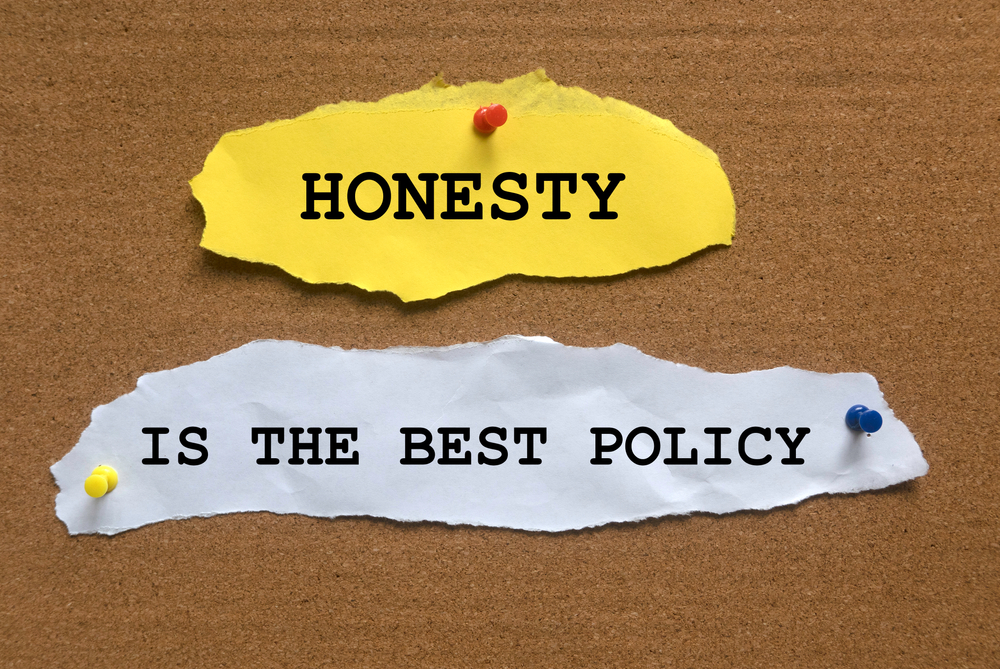There’s a good chance that your addiction has led you to some level of dishonesty. Maybe you were hiding your mistakes, skipping over questions about where you’ve been, or keeping secrets about your substance abuse at some point in your life. Maybe you didn’t even realize you were lying, or you lied on purpose to protect yourself from the consequences.
Your dishonesty probably started off with seemingly harmless half-truths, but then you suddenly found yourself stacking up new lies onto the old ones. This pattern quickly turned into a web of dishonesty. Now that you’re in recovery, you may find it hard to break the cycle of lying that was once so ingrained in you. This post will go over some ways you can kick that bad habit and go on living a truthful life.
Read on to learn more!

Why Do We Lie During Addiction?
When someone is addicted to drugs or alcohol, they will do anything to get them. This includes unintentionally manipulating the people around them.
Shame is a big reason why people lie about their substance abuse. It can be hard to be vulnerable about your substance abuse, especially when you aren’t being honest with yourself and the people around you about your problem.
People generally lie to avoid consequences and negative reactions from others. It’s very easy to lie to your friends and family about your substance abuse just so you can continue using on your own time. You may begin to cover up mistakes with excuses or make up good things that are happening to you to distract them from what’s really going on. However, if a loved one begins to ask you about your behavior, this can seem threatening to you, making you turn into a more defensive, angrier person.
Addiction also rewires your brain so that you do whatever you can to feel good or feel “normal.” As time progresses, the part of the brain that controls morality and judgment can be damaged, and this will affect how you make rational decisions down the road. Your brain also becomes reliant on the drug and won’t be able to work properly without it. You will continue to lie and say anything just to make sure that you can get more of your substance and avoid any negative withdrawals.

Lying creates short-term outcomes. Perhaps you promised your loved one that you would go out and run errands for them, but instead, you decide to go spend the whole day getting drunk at the bar or getting high in the basement. When your loved one comes home and sees that none of the errands were completed, they will ask what happened. Instead of being honest, you’ll lie and say you spent the day doing something good like spending time with a relative. This might work for a little bit, and they’ll believe you, but as soon as you start giving excuses for everything, suspicions will rise. This will ultimately damage the communication in your relationship.
Since honesty is so important during recovery, it’s important that you take some time to ask yourself if you’re being completely honest. If you realize that you aren’t, there’s no need to feel discouraged or overwhelmed. Take this time as an opportunity to practice being more truthful so you can improve your recovery.
How Do You Become More Honest in Recovery?
Honesty can be hard to re-learn during recovery because addicts usually spend so much time trying to avoid it. Being honest requires strength and self-reflection, but it’s still possible to stop lying during your recovery.
Identify Your Triggers
The first thing you should do is think about why you’re lying in the first place. Are they happening automatically? When you lie over and over again, lying can become a habit with almost a sort of muscle memory to it. It gives you the idea that you’re in control of the situation you’re in as well as the reaction of others, which is why it’s so tempting to do.
You should also ask yourself if your lies are caused by feelings of shame or fear. Every person has different triggers, and they happen when different things cause strong feelings or overwhelming memories. When you catch yourself in a lie, there is probably a trigger that initially caused it. Perhaps recovery is new to you and feels like a sensitive topic in your life. Whenever someone asks you about what it’s like being sober now, maybe you feel anxious and tense. You might give short, straight-to-the-point responses to every question you get about sobriety when in reality you are struggling with your new habits and choices.
Instead of lying, try your best to be as honest and vulnerable with the person that’s asking. They may offer you some advice that you needed to hear all along. They could also prove to be a nice shoulder to lean on. Overall, when you know what triggers you, you’ll be able to address how to cope with them in the future.
Consider the Consequences
It’s very important that you think about the consequences of your lies. Perhaps people have lost trust in you because you have lied so much. Maybe you’re in financial trouble because you convinced others to give you money. No matter what the case is, the lies have eventually caught up to you. As you work your way through recovery, it may seem like all your old lies are beginning to creep up next to you, and it can be overwhelming to try and fix all those consequences. Thinking about the old and potential consequences of your decisions should be a huge motivator to break you out of your cycle of dishonesty.
Let Your Loved Ones Keep You Accountable
An easy way for you to start working on your lies is to have someone that’s close to you keep you accountable. This person could be a sponsor, family member, friend, or someone from your support group that will support you and gives you a safe space where you can be completely honest and vulnerable. If you lie, this person should catch it, help you address it, and help you correct it.
Journal Your Thoughts and Feelings
If you notice that you’re still lying frequently, try writing down what the lie was and what you think triggered it. Having a written record of your lies and when they happened can help you find out the negative patterns you have so you can take some accountability. This self-reflection will aid in your honesty with yourself and the people around you.
Remember that recovery is a process and it can take some time to be honest. No one can be fully honest all the time, and you shouldn’t try to reach that standard yourself. When you show yourself and the people around you that you’ve been working on your honesty, you’ll start to gain respect from others, and also yourself. You may even be able to fix any issues that were caused by your lying.
When you start telling the truth, life gets incrementally better. You will no longer experience stress and anxiety from all the lies you were telling, and you will form deeper, more meaningful connections with the people around you. Your recovery will improve, and you be able to live life as a more authentic version of yourself.

Your Road to Recovery Starts Now.
Give us a call or send us an email and an admissions counselor will be in touch to answer all of your questions.
310 E Dupont Rd, Fort Wayne, IN







